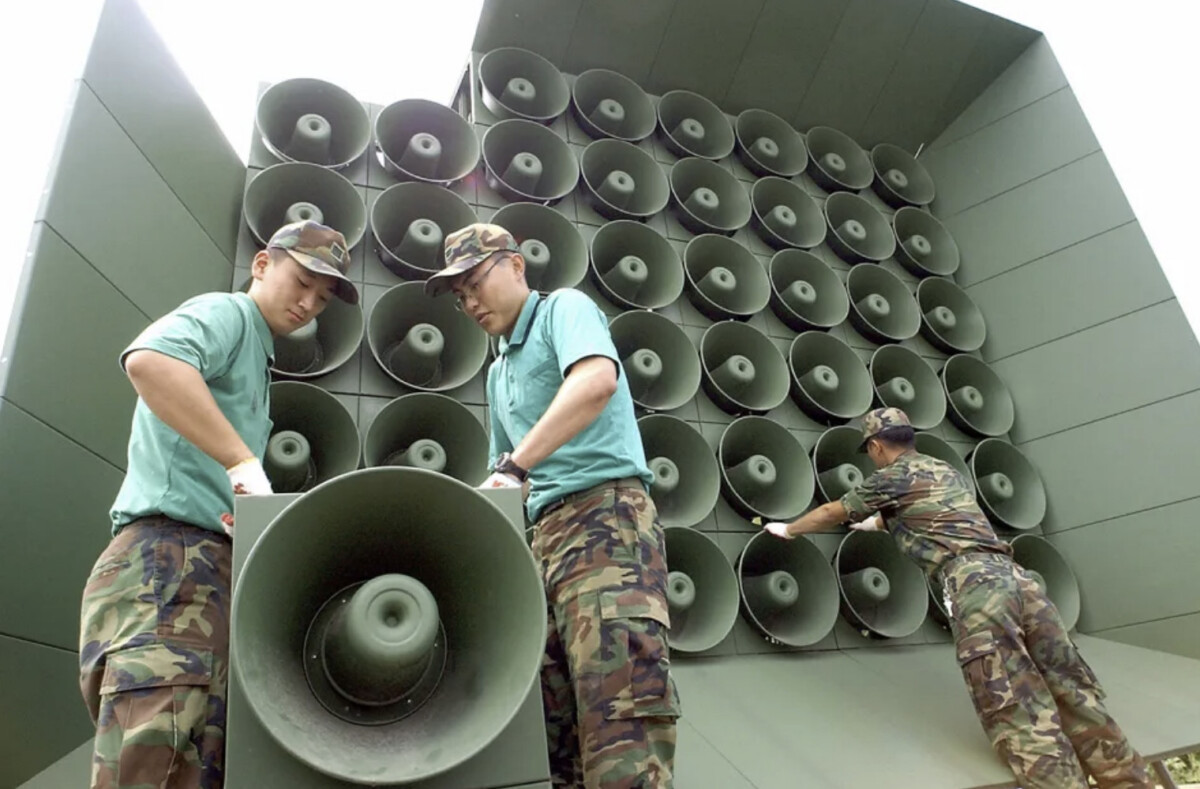Dismantled communications network makes life worse for North Korean dissidents

The Korean Peninsula is witnessing a potential renewal of hostilities due to an even more emboldened North Korea post its involvement in Russia and with South Korea dealing with reforms post the attempted coup by the previous president, Yoon Suk-yeol.
With the Kim regime ending reconciliation efforts, Seoul has recently begun dismantling its speaker systems. The systems not only pumped out loud music, but also psychological operations and countered North Korean propaganda for potential dissidents.
South Korea views the new policy as a means of easing tensions with the North amid rising challenges in the Indo-Pacific region. However, the system is a crucial factor in helping dissidents flee one of the world’s most brutal regimes, and without it, life becomes harder for potential escapees.
There is a long history behind the loudspeakers on the demilitarized zone (DMZ). During the 1950-53 Korean War, the United States implemented loudspeakers during combat operations as a form of psychological warfare. After the armistice froze the war along the 38th parallel, American-led speakers continued.
The South Koreans took over psychological operations in the 1960s. Their first loudspeakers on the DMZ were in 1963 during the rule of Park Chung-hee. During this period, Seoul faced looming threats due to the U.S. military allocating much of its Indo-Pacific forces towards the Vietnam War.
South Korea would temporarily suspend broadcasts during reconciliation negotiations in 2004, but Pyongyang used the pretext of peace talks to test its first nuclear bomb. There would be a several-year pause on broadcasts until the provocations by the North, notably the 2010 shelling of Yeonpyeongdo and the sinking of the ROKS Cheonan.
After the ascension of Kim Jong-un, there was hope for reconciliation, which the first Trump Administration pressed on. Nevertheless, the new North Korean leader became even more aggressive than his father.
In 2024, Kim ended the process of peaceful reunification with Seoul and heightened escalation with tons of trash flown across the border and the deployment of troops in the Russo-Ukrainian War in Kursk.
Pyongyang increased its own speakers along the DMZ with an uncomfortable frequency, to the point where Seoul compensated citizens affected by them. Recently, the new South Korean President Lee Jae-myung, wanting tensions mitigated on the peninsula, ordered the removal of the loudspeakers.
Broadcasts from South Korea’s loudspeakers didn’t only provide psychological elements against the Kim regime, but also served a critical humanitarian purpose for disenfranchised North Koreans.
In 2017, two KPA soldiers defected to the South after hearing the broadcasts. The loudspeakers often play K-pop, which appeals to northerners, and display international news blocked by Pyongyang.
According to defector Kim Sung-min, the broadcasts help North Koreans realize there is more to the outside world than the regime teaches. Hearing music and news broadcasts, unfamiliar in state-mandated education, the broadcasts help North Koreans develop critical thinking skills that Pyongyang attempts to repress.
The broadcasts have an effective enough track record that Pyongyang’s reciprocal broadcasts are primarily used in an effort to block out Seoul’s messaging that reaches citizens of the North up to twenty kilometers away.
Defectors not only praise the system but also actively participate in broadcasts, seeking to reach out to their former compatriots and provide them with a better understanding of life outside. Besides hotlines and diplomatic back channels, some of which could be ignored by Kim Jong-un’s more aggressive leadership, South Korean broadcasts can serve as an alternative emergency communication line.
For instance, Kim and his family may not be reachable. They may conduct irrational decisions, as seen with heightened provocative missile launches, but potential rocket forces and troops mobilized near the border can be reached via broadcasts. As seen in the Cold War, in some instances, it was troops, not command or heads of state, that averted disasters. Similarly, this can be applied through the DMZ broadcasting policy.
President Lee Jae-myung is taking a proactive and pragmatic approach in foreign relations, neither provoking nor enacting first strike aggression on the peninsula. Nonetheless, it will be crucial to reconsider the loudspeaker broadcasts as the DPRK continues to show it is currently not interested in rapprochement or de-escalation, especially after becoming more emboldened, testing conventional warfare for the first time since the 1950s.
- Dismantled communications network makes life worse for North Korean dissidents - September 9, 2025
- The Indo-Pacific 80 years on from the nuclear bombs on Japan - August 6, 2025
- The race for long-range missiles between Japan and North Korea - June 27, 2025

